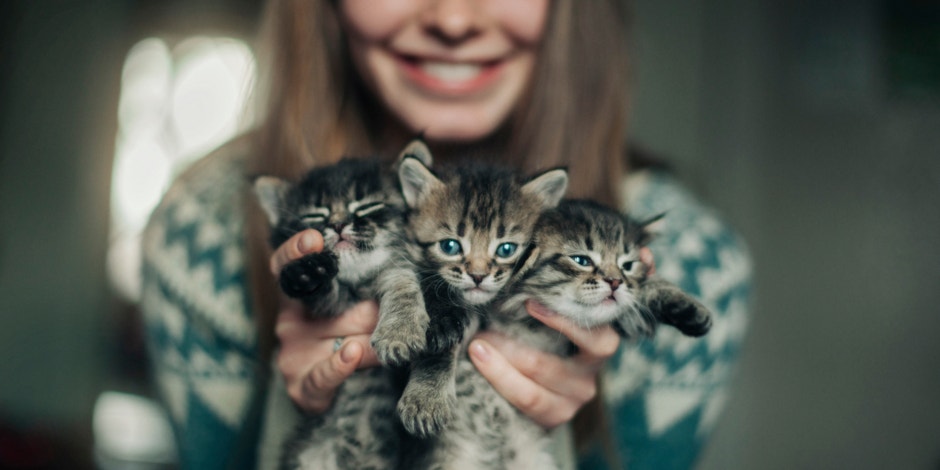Why You Should Spend WAY More Time Cuddling With Cats, Says Study
I mean, if science says so...
 Getty
Getty When my friends got their two kittens, both cats were sick. Instead of immediately returning the cats, they made sure to pet and play with them. Now their kittens are thriving and you'd barely recognize them as the sickly cats they once were.
Unfortunately, not everybody is willing to invest their time and money into an unhealthy kitty. The saddest thing is when healthy cats are returned to the shelter, get sick there, and have to be put down.
We know that cat's purr is very therapeutic for humans and petting them helps to lower blood pressure, helps with stress, and lessens the risk of heart attack. But a recent study has found that interacting with humans helps keep a cat healthy.
For the study, which was published in the journal Preventive Veterinary Medicine, 250 cats over six months old, without any signs of upper respiratory disease and who had been admitted as either owner-surrendered or strays to a Canadian animal shelter, were assessed as either content, anxious or frustrated.
Ninety-six cats were considered content based on a one-hour real-time video observation of the cat's response to a human approach test, and these content cats were the subjects of the study. The cats were examined by a certified animal health technician upon admission to the shelter and were determined to be free of signs of illness, including URD (Upper Respiratory Disease) and injury.
The 96 study cats were put in either the treatment group or a control group. The cats in the treatment group got positive interaction with the same person for 10 minutes at a time, four times a day, for 10 days. This interaction, which included things such as petting, brushing and playing, is called gentling.
Gentling is the use of stroking in connection with soft talking or sounds and is used to help a cat feel more comfortable with human hands. This stroking isn't the same as everyday petting; it's more like a massaging motion.
Instead of being gentled, the control group cats had a researcher stand in front of their cage with eyes averted for the same length of time.
The study found that the cats with positive human interactions continued to have a content attitude and were less likely to have developed an upper respiratory disease; the control group was found to be less content and sicker.
Previous research found that emotional stress can compromise a cat's health, so it's not surprising that 17 out of the 49 cats in the control group developed upper respiratory diseases. The theory is that a cat's contentment stimulates the production of an antibody, which helps fight upper respiratory disease.
Animal welfare consultant Nadine Gourkow, one of lead researchers of the study, said she found a "strong association between positive emotions induced by gentling and good health."
The findings of the study show that this kind of treatment (human gentling) can be provided at little to no cost to a shelter using trained volunteers, and significantly enhances well-being, survival and potential adoptability of shelter cats. In addition, this treatment works on home pets, so be sure to use gentling on your own cat or cats.
The best news from the study is that some of the cats who were in the gentling group (who were previously hostile and aggressive) did so well after the treatment that they were adopted in one week.
If you find you have some time on your hands and can handle being in an animal shelter without becoming an emotional wreck, then volunteer to spend some time with the cats. You might just save a life.

